




Ever wondered why we dream? Or how it is that two people can recall the same event so differently? Considered if you would be a good eyewitness to a crime? Pondered over the nature-nurture debate? Questioned how we understand the mind of a psychopath? Then psychology could be the perfect degree subject for you.
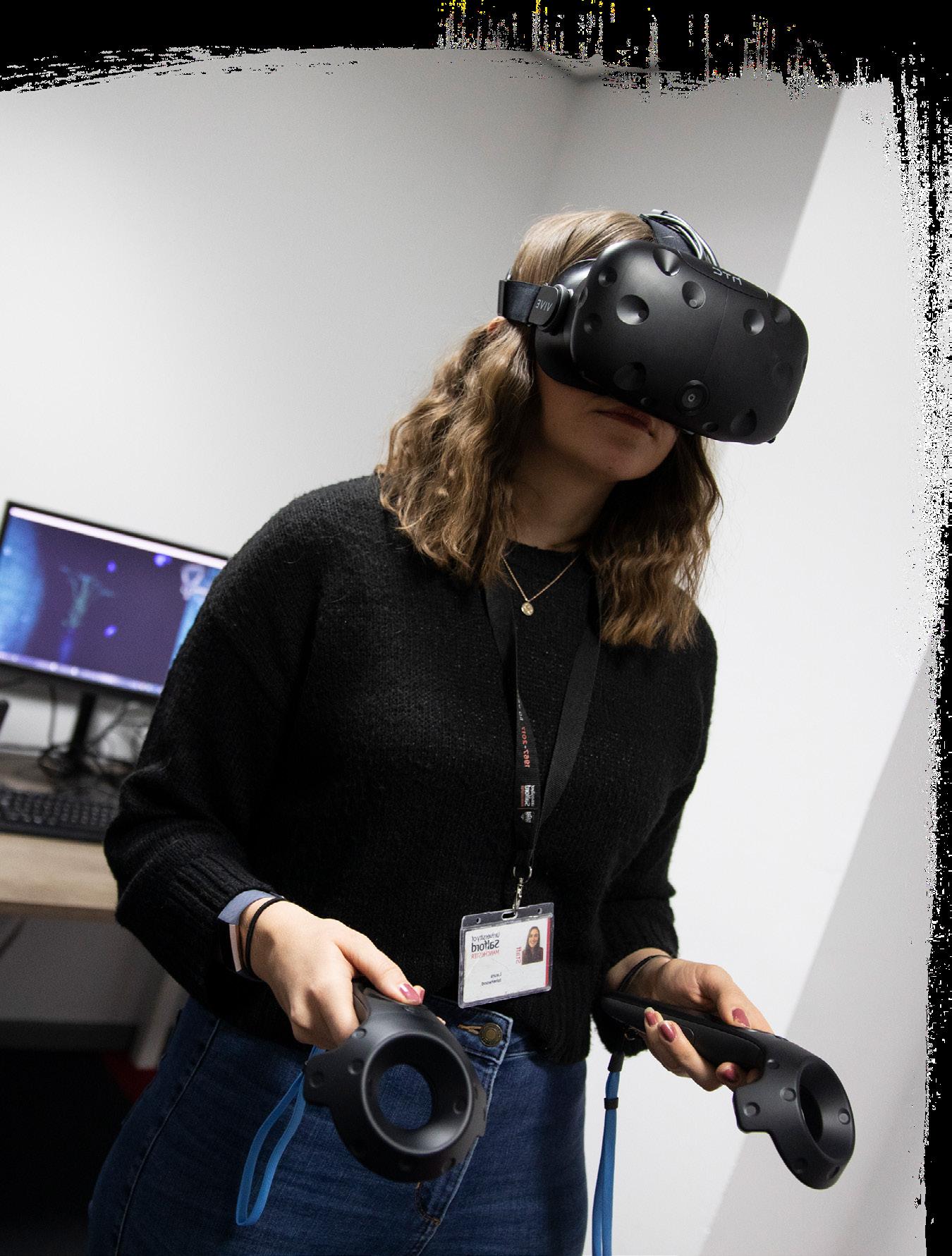
Psychology is a science-based degree that combines critical evaluation, research, literacy, statistical analysis, and people skills. It considers human behaviour using various perspectives including biological, cognitive, developmental, social and individual differences. It is the perfect degree subject for those who are naturally inquisitive and are interested in the human mind, and how we think, act and feel.
Whether you realise it or not, psychology is present in our everyday lives, including in the media and advertising, education, healthcare, politics, business, sport, animal care and the criminal justice system. The beauty of studying such a broad subject area is that you can tailor your experience and head down the route that interests you the most, carving out the perfect career for yourself.
The basis of psychology is understanding people. With this ability, you will have the transferable skills and knowledge that will enable you to pursue a range of different career pathways. Psychologists work in a variety of different roles related to healthcare, clinical psychology, education, sport and exercise, neurological, counselling, occupational, and academia and research.
There are also opportunities for psychology graduates outside of psychology. Many go on to further study, to use their skills in fields such as teaching, social work, HR and the Police. Others opt to apply their understanding of the human mind and behaviour to careers in marketing, PR, business, analysis and consultancy.
Find out about some of the career pathways our recent graduates have taken.
Current Role: Highly Specialist Clinical Psychologist, Child and Adolescent Mental Health Services, Pennine Care NHS Foundation Trust
My psychology degree from Salford provided me with knowledge and transferable skills to gain employment in a variety of roles post-graduation. Early on in my career this included roles as a Leaving Care Support Worker, Family Intervention Worker, Voluntary Research Assistant and Assistant Psychologist. This valuable experience provided the foundation for application to the Doctorate in Clinical Psychology Training Programme (DClinPsy).
On a day-to-day basis I provide psychological assessments and therapeutic interventions to children and families impacted by Adverse Childhood Experiences (ACEs) and developmental trauma, and offer training and consultations to the professional networks supporting children and families to enhance their understanding of needs from a psychological perspective.
I couldn’t ask for a more varied and interesting role and feel privileged to support children and families in reducing the impact of difficult life experiences on psychological wellbeing.

Current Role: Performance Psychologist
I am a Performance Psychologist, currently in training to become a Sports Psychologist. I currently work with athletes in boxing, MMA, football and equestrian. Sport and exercise psychology can take you in many different directions. You’ll often find yourself working with individuals or sports teams to help them to return to exercise or to improve performance, but the skills are transferable and can be applied in other settings, for example I have worked with businesses who need support with organisational performance.

“Psychology is a really interesting degree to study and provides lots of career opportunities. I’ve stayed in contact with the friends I made at university and we’re all working in different roles now, from HR, to mental health and substance misuse - we’re all applying the knowledge and skills we gained from our psychology degree, just in different ways!”
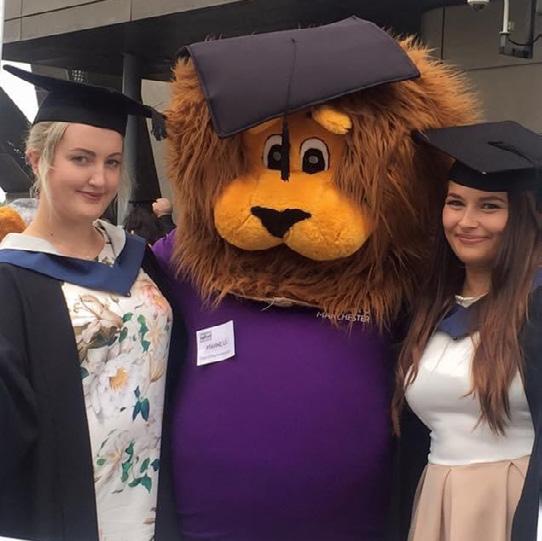
Current Role: Perinatal Cognitive Behavioural Therapist
I am about to transition from a Trainee High Intensity Therapist role to a qualified Perinatal Cognitive Behavioural Therapist. Day to day, I run a mixture of therapy sessions and assessments, working with people with depression, generalised anxiety disorder, panic disorder, social phobia, obsessive compulsive disorder and PTSD. I love my job as I love helping people and teaching them CBT skills which is something that will hopefully stay with them forever.
My new role will be a similar role in terms of responsibilities, but I’ll be working with pregnant women and new mothers, which is what I’ve always wanted to specialise in.
Current Role: User Researcher and Designer

I was accepted onto a graduate scheme at a consultancy after I graduated. Here I developed a passion for user research and design, and found looking at digital transformation from a psychological perspective fascinating. I decided to upskill by completing a Diploma in User Experience from the UX Design Institute and then I got a job as a User Researcher. I started to learn about accessibility, which is essentially tailoring products to suit the needs of people with disabilities. This involves working with users to understand any needs and issues, and developing solutions to make the experience better for them. This felt like the perfect blend of my psychology background and my experience of digital transformation projects.
I feel I have a lot of transferable skills from my psychology degree, particularly linked to my current role in user research, such as understanding qualitative and quantitative research, interviewing skills, understanding people and finding solutions. I now studying for a Professional Diploma in Cyberpsychology and hope to use this to progress my career in this area.
Current Role: Trainee Clinical Associate Psychologist
After graduating, I was working as a Health Care Assistant in a locked rehabilitation centre for males, when an Assistant Psychologist position for a Community Child and Adolescent Mental Health Service (CAMHS) came up. I did this for four years, and then applied for my current role which is a Clinical Associate Psychologist, which is a fairly new position within the NHS and means I work within community mental health services whilst studying for a master’s.
To read their full stories, visit our careers in psychology page: salford.ac.uk/psychology-careers

We have five psychology courses at University of Salford. Our range of courses allows you to specialise in different areas of the discipline, such as human and animal behaviour, sport, counselling and criminology.
All of our courses are British Psychological Society (BPS) accredited, which means if you achieve a second-class degree or above, Graduate Basis for Registration is awarded. This is the first step towards becoming a Clinical Psychologist.
We want you to get the most out of your course at Salford, which is why, when it comes to the final year of all our psychology courses, the course content is in your hands. Aside from the mandatory Dissertation module, in which you will carry out a supervised research project on your chosen topic, you will be able to tailor the third year to your interests by choosing four modules from a large list of options. One of the optional modules is a placement, which we strongly recommend as this enables you to gain experience in the field of your choice, which will boost your CV once you graduate.
This course is perfect for you if you have a general interest in psychology and have not yet decided on a particular area of specialism. This course is designed to provide you with in-depth knowledge and opportunities for learning a wide range of psychological concepts. It has a hands-on approach to developing research skills and encourages you to apply the theory to realworld settings.
This course is designed to provide you with a thorough grounding in the theory and application of both psychology and counselling. As subjects, the two are recognised as real assets by employers because they develop people skills and knowledge that are invaluable when working with individuals and teams. Alongside your degree, you will also receive a Graduate Certificate of Competency in Counselling, which is a basis for further training, if you decide you’d like to become a Counsellor.
UCAS UCASCrime is one of the major problems facing society today. To understand the complex issues surrounding it, we have brought together two areas of study that have a natural affinity. The course will provide a basis for careers in criminal justice, social care, health and education.

This course aims to give you a thorough grounding in psychology and the behaviour of both human and non-human animals. This is an applied course and you will be investigating how a better understanding of animal behaviour can contribute to the health and wellbeing of humans, and how a knowledge of human behaviour can help us understand animal behaviour.
Want to understand how athletes train their minds as well as their bodies? Interested in the relationship between exercise and mental health? Do you have a passion for sport and exercise? If so, then this course is the one for you. On this course, you will explore relationships between psychological factors and develop an understanding of how they influence performance of individuals and sports teams. You will develop a critical understanding of health behaviour, exploring the barriers to exercise, and considering motivation, confidence, competence and self-efficacy.
The below information applies across all of our psychology courses offered at University of Salford.
LOCATION
DURATION
START DATE
TYPICAL ENTRY
UCAS Tariff
GCE A-Level
BTEC National Diploma

Three years full-time, six years part-time
September 112 points
BBC
DMM
Exams, research reports, essays, group work, presentations
Lectures, seminars, presentations, group work, online lectures, study skills workshops
the research and literature review side of the course, as well as volunteering for Rafiki, the University’s peer support service, which provided me with a chance to give something back during the COVID-19 pandemic. Salford is also the main hub for research in Foetal Alcohol Spectrum Disorder and I am currently able to contribute on a postgraduate research programme in this area.
I have always felt extremely supported by the staff at the University. My course lecturers and seminar leaders are great at raising awareness of the importance of balancing university life and personal life, and the library staff are also very supportive and helpful when needing assistance with finding literature and running workshops to help with academic writing.
I would advise anybody thinking of studying at Salford to come to campus and explore what it has to offer. Using the transport links, grabbing a coffee in the café and talking to students, or using the gym facilities may help in your decision. When it comes to studying Psychology at Salford there are a large variety of courses on offer. Whether, like me, you are interested in communication and brain development, the clinical and biological elements in mental health, or are a budding researcher in sports or animal behaviour you can find it here. Psychology has taught me a huge number of things that I will use in both personally and professionally for the rest of my life.

“As I’m in my final year, I have fewer lectures as the dissertation accounts for half of our options.”
I don’t have any lessons on Monday, so I can spend that time working, studying or working on my assignments.
On Wednesday I had a meeting with Sam the psychology Technician to discuss the equipment I have chosen to use for my dissertation. I am using functional Near-Infrared Spectroscopy (fNIRS for short!) to investigate brain activity in specific areas of the brain while participants do particular tasks. The equipment does this by measuring changes in blood oxygenation levels. Salford is quite unique in that students can use any of the equipment we are interested in for our dissertations; there are a three dedicated psychology technicians who are always available to show us how to use the equipment and help us to set up our experiments. I have taken part in a few of my fellow students’ experiments for their dissertations; they can return the favour now I’ve got mine ready to go!
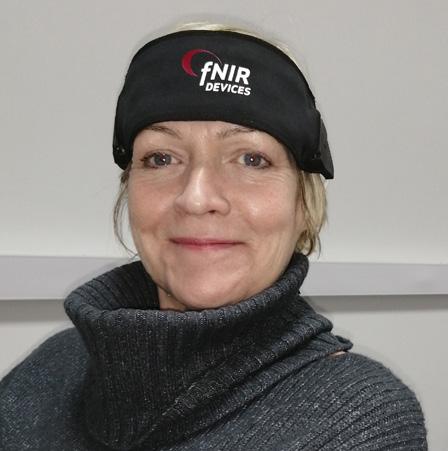
On Tuesday morning we have Expressive Therapies; this is all about different types of creative therapies such as art, music or drama therapy. This is one of the optional modules you will be able to choose in your third year. Last week the session was on Drama Therapy with a live performance from a group called Playback Theatre. This week was about outdoor therapy, so we had a lecture about the theory and how the discipline developed, followed by an outdoor session: an experiential session on Shinrin Yoku (Japanese Forest Bathing)! We all came dressed for a walk in the woods—which meant boots, hats and brollies to be fully prepared for a Mancunian winter’s day! We set off for the wooded area over on the main campus and spent an hour or so on various mindfulness-type activities exploring the area. It was actually a powerful experience, finding such an oasis of calm in such a built-up area; the noises of the traffic disappeared and were replaced by birds tweeting! We ended the session building a kind of monument to nature out of the sticks and branches we found.
I am also off on Thursdays this year, so in September I started volunteering as a telephone counsellor at Childline. The training was very intense, taking until the end of November to complete and I started my volunteer shifts, on Thursday afternoons/evenings in December. It really is rewarding, and the training is excellent. It’s great to actually put some of the skills I have learned on my counselling modules into practice, and it will be great to have as experience on my CV for when I graduate.
On Friday afternoon I have the psychology module ‘Brain and Behaviour’. We had loads of modules to choose from including social, developmental, and forensic psychology. I have really enjoyed the biological modules so chose this for my last module. I was amazed at how much biology was involved in the study of psychology. In this module we are looking at the relationship between behaviour and the nervous system, and looking at things like the effect on behaviour of damage to particular areas of the brain.
We have a number of modern laboratory spaces that are used by both staff and students to conduct research. These facilities are supported by state-of-the-art equipment, including our specialised observation suites that provide an ideal environment for the observation and recording of group interactions. We have a wide variety of equipment that we use in these spaces, from cameras and Dictaphones, to tablets and virtual reality headsets.
As well as these specialist spaces we provide access to dedicated study spaces, with access to all the software you’ll need to work on your assignments and analyse data.
There are lots of ways that we can examine how people respond to different stimuli. Of course, we could ask them, but we can also measure changes in people’s physiology to see for ourselves. We have a variety of equipment that can be used to measure changes in physiology, such as changes to people’s heart rates, the electrical properties of a person’s skin, or the activity of muscles. Psychophysiology equipment allows us to examine questions about how psychology and biology interact, like why can listening to music make your skin tingle?
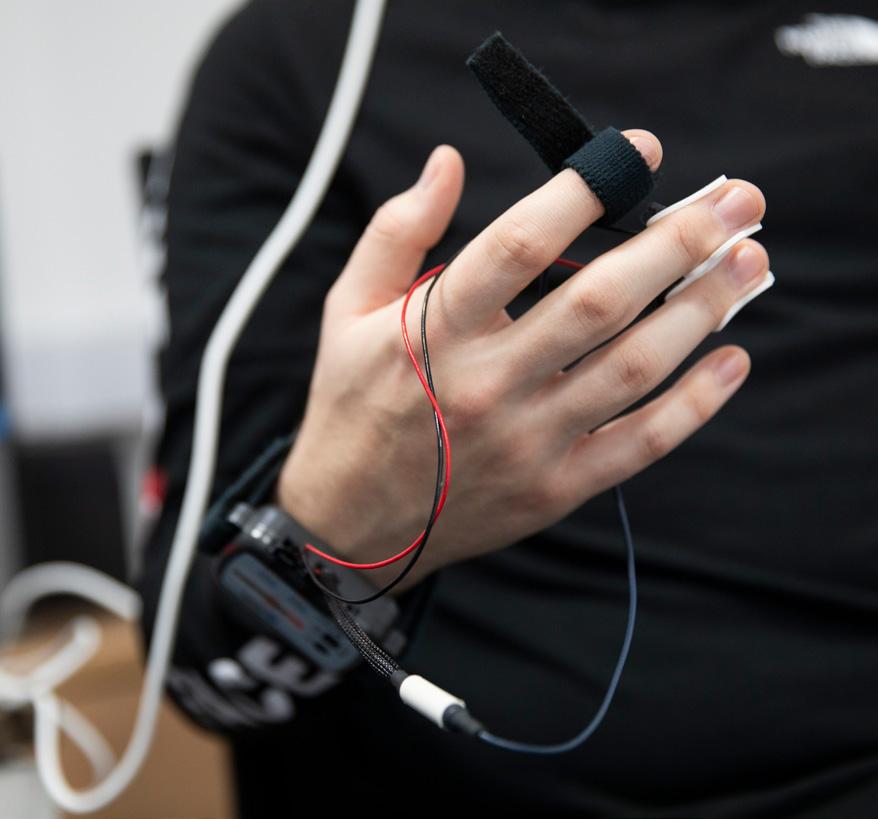
By recording the movements of the eyes we can calculate where people are looking, and the department has a number of devices that allow us to do this: from desktop systems, that allow us to look at how participants search for information in a picture, to how they interact with websites or games; to head-mounted systems, that allow us to study how people use their gaze in the real world.
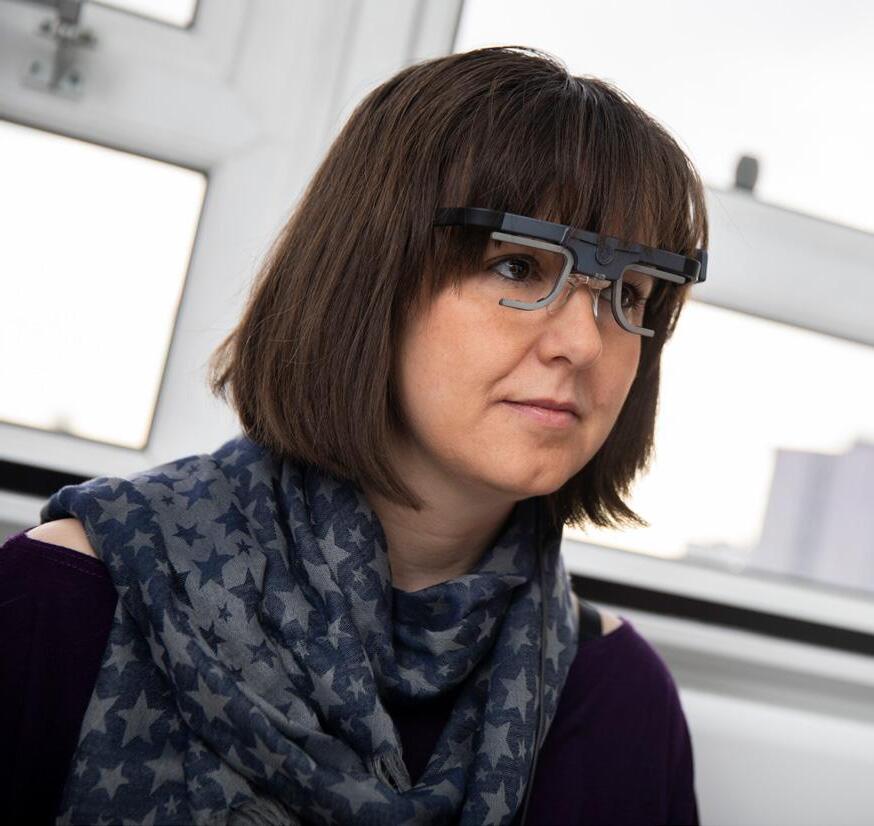
Neuroimaging technology allows us to examine activity in the brain, so that we can understand how the brain works (as well as how it can go wrong)! We have a a number of devices that allow us to examine both where in the brain things happen, and when they happen. We can use tracking systems to map brain activity in 3D space, and our neurostimulation device allows us to cause temporary changes to brain activity that help to confirm theories about how the brain works.
We have an observation suite that features recording and display solutions as well as a one way mirror. This allows us to observe behaviour of both adults and children.
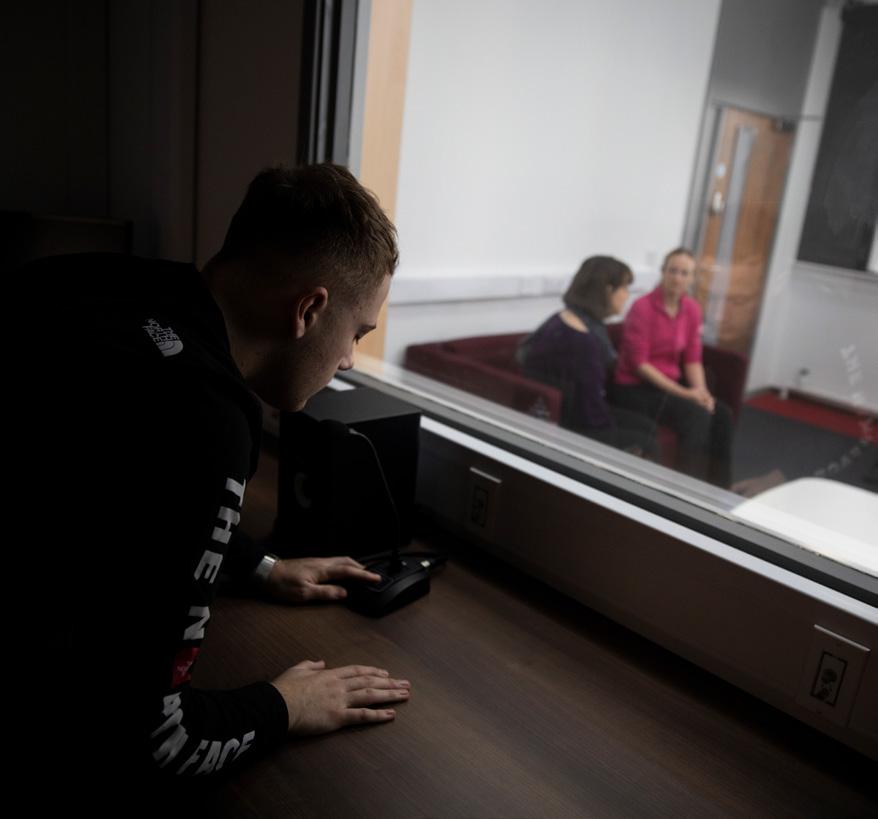

Our students and graduates often say that one of their favourite things about Salford is the “community feel” and we are very proud of our psychology community at Salford. Throughout your course, you’ll be supported by expert and award-winning staff, including authors of books and papers in a range of specialisms, some of whom have appeared on national television and radio and have been nominated for University of Salford teaching awards.
The psychology team are research active and have been recognised at both national and international levels and for work on driving, media, child development, addictions, clinical and health psychology, occupational stress, emotional intelligence and terrorism.

Ashley Weinberg, Senior Lecturer, has recently published an article featured in the Washington Post raising concerns around the need to support politicians with their mental health. Ashley hosts the Psychology of Democracy Conference at University of Salford every year, which students can attend for free.
As part of your degree, you will have the opportunity to undertake a unique assignment in the form of a poster conference. This annual event has been highlighted for commendation by the British Psychological Society (BPS), and allows our students to gain experience presenting their research in a visual medium and in a real world context, as happens at academic and professional conferences.
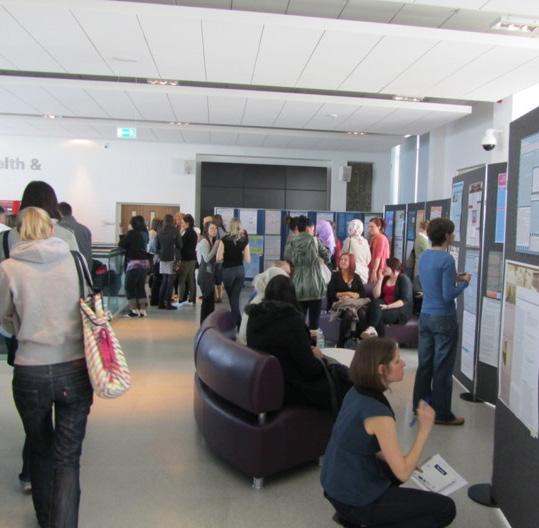
A POLITICIAN’S MENTAL HEALTH IS AS CRUCIAL AS A PILOT’S. WHY DON’T WE TEND TO IT?
A POLITICIAN’S MENTAL HEALTH IS AS CRUCIAL AS A PILOT’S. WHY DON’T WE TEND TO IT?
FIRE SERVICE RESEARCH FIRE SERVICE RESEARCH
Dr Catherine Thompson, Lecturer in Cognitive Psychology, is working with colleagues from Sports Rehabilitation on a one-year project for the Fire Service Research and Training Trust (FSRTT), which is designed to study the effect of extreme temperatures on the decision-making of fire fighters.
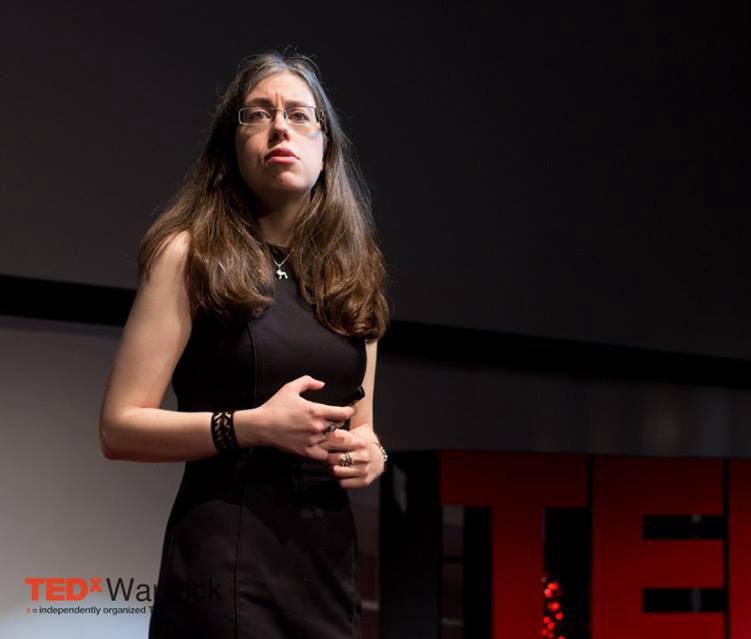
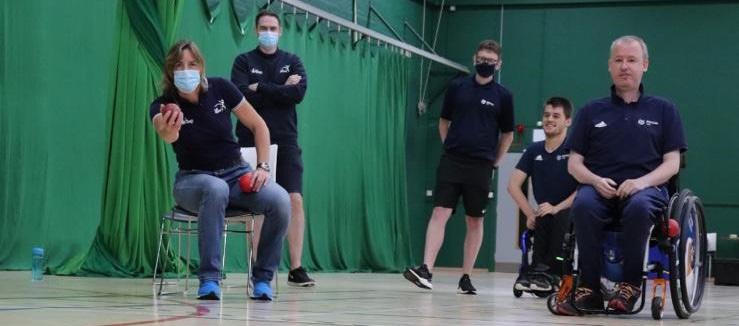
A BOOK RELEASE A BOOK RELEASE
SUPPORTING TEAM GB SUPPORTING TEAM GB
THE CENTRE FOR YOUTH AND CRIMINAL JUSTICE HAS A NEW RECRUIT
Dr Andrew Evans, Lecturer in Sport Psychology, has been working with the English Institute of Sport (EIS) in the sport of Boccia since 2020. His role as Performance Psychologist involves providing psychological support to Team GB athletes, staff and assistants on the World Class Programme.
Sam Royle, our multi-award-winning psychology technician, is part of the Alcohol Hangover Research Group, and recently found time to speak to the BBC about hangover symptoms and common hangover beliefs, such as whether hangovers get worse as you get older.
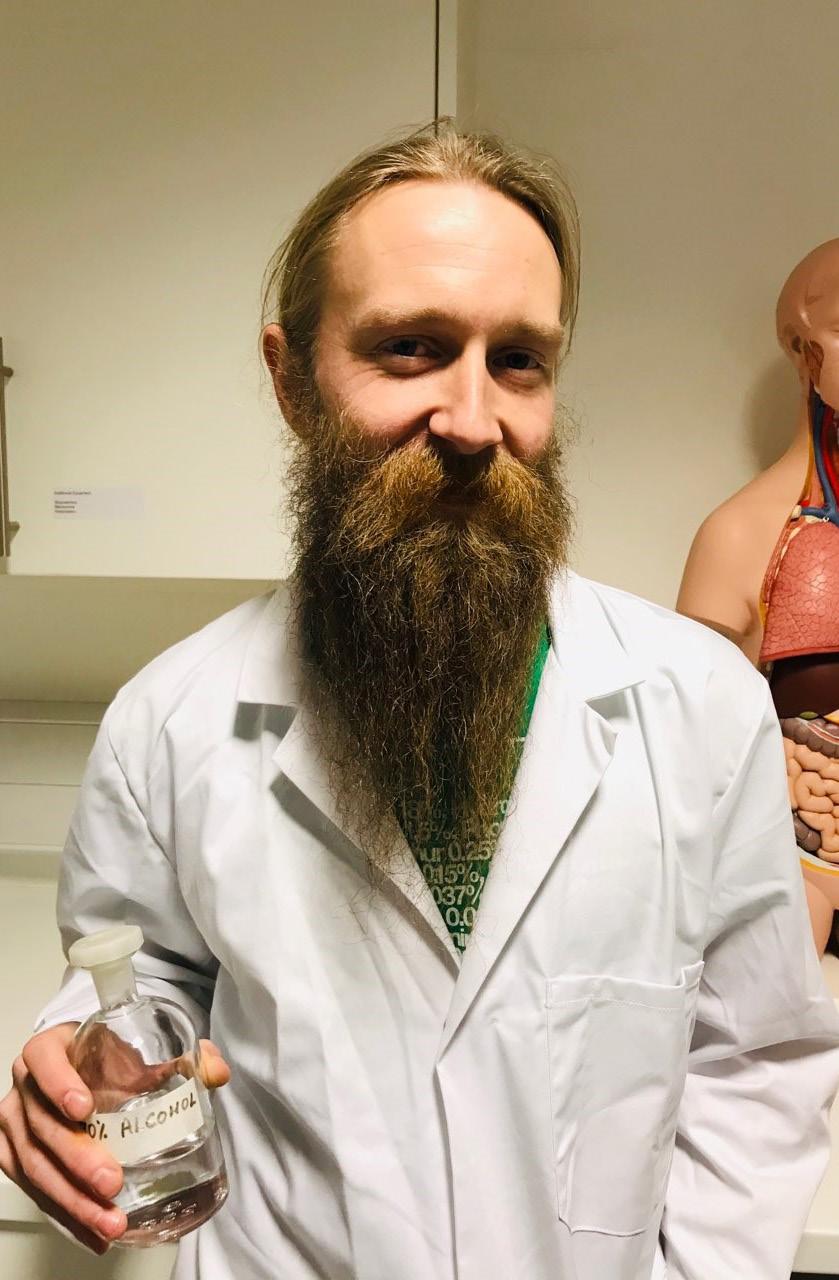
Read more at bbc.co.uk/food/articles/hangover_cure
Programme Lead for our Psychology of Human and Animal Behaviour course, Greg Keenan, has a research interest in the psychobiology of human and animal food choice and intake. His recent research, funded by N8 Agrifood and Global Food Security’s “Resilience of the UK Food System Programme”, explored the link between food poverty and mental and physical distress.
We have recently had the results of a study, ‘Prevalence of foetal alcohol spectrum disorder in Greater Manchester, UK’ published. Led by Prof. Penny Cook and commissioned by the GM Health and Social Care Partnership, the research is the first of its kind in the UK. It found that FASD is a significant issue among the population, likely to be as common as autism, despite being rarely diagnosed.
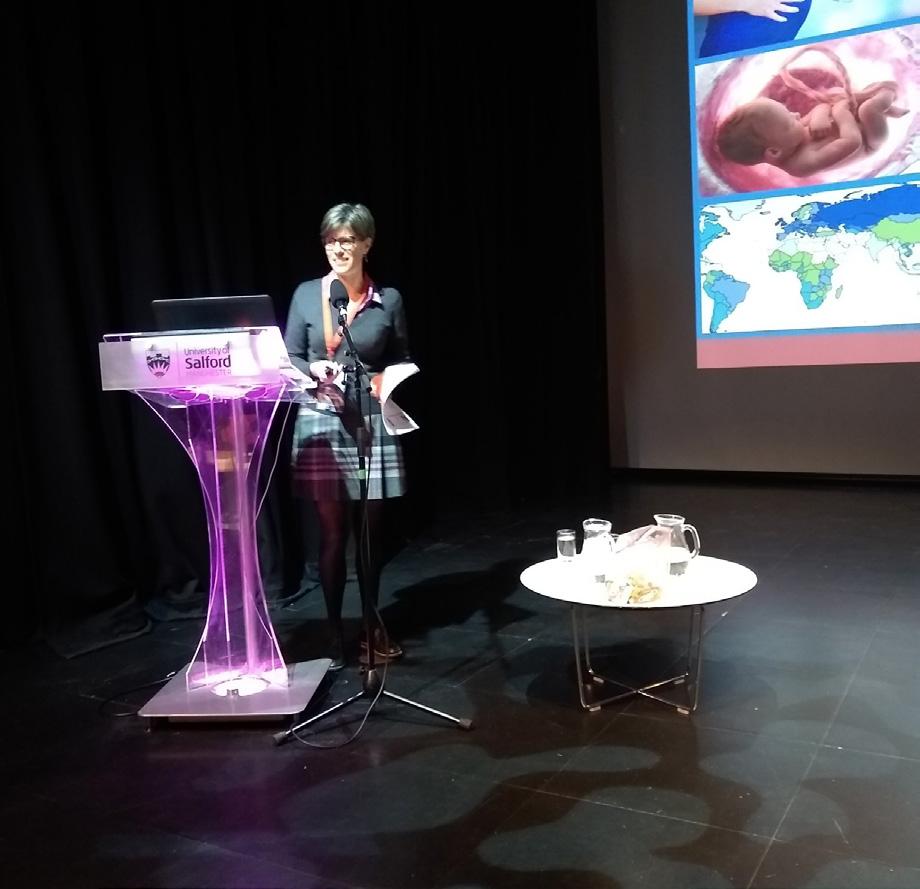
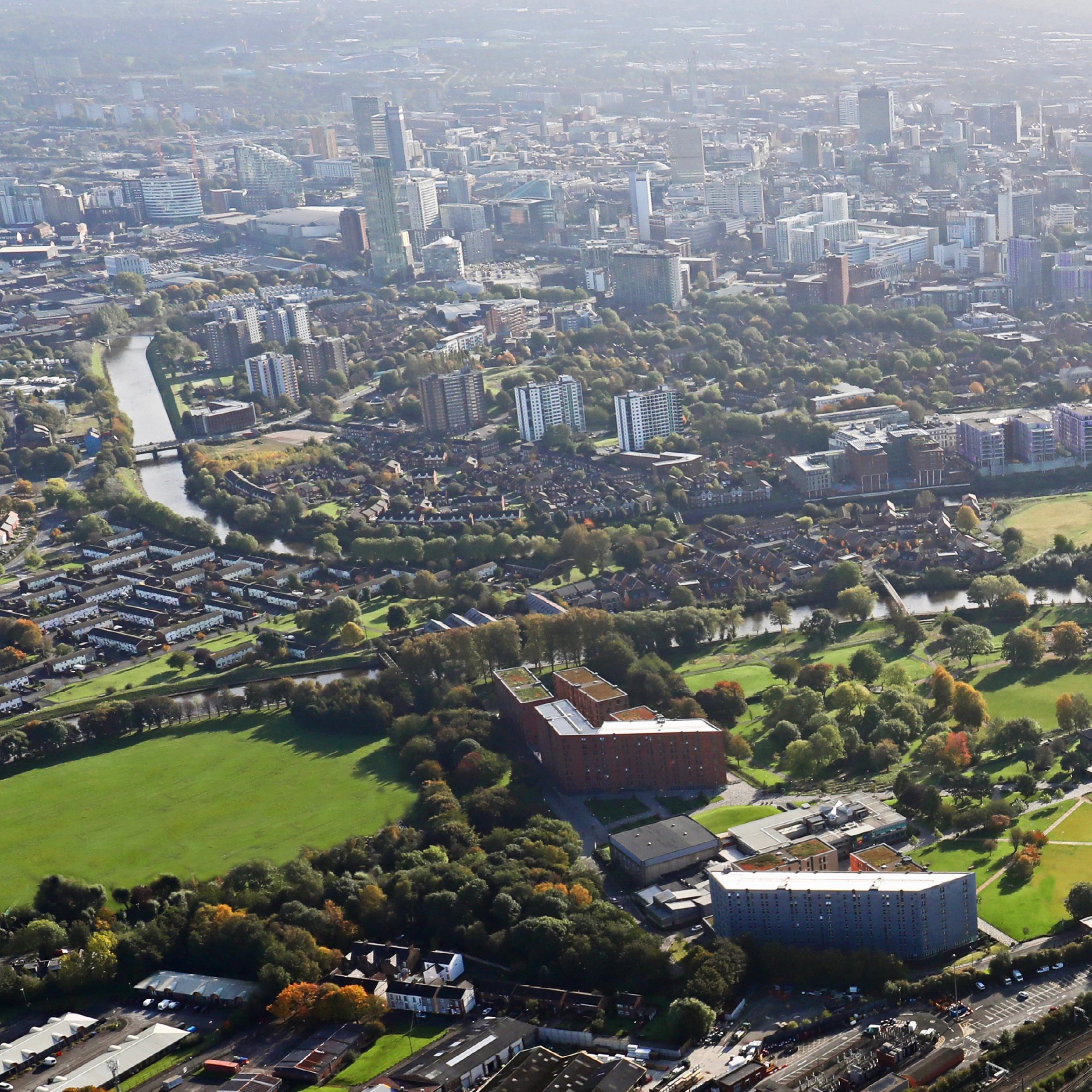
As pioneers of the Industrial Revolution, there’s always been an entrepreneurial spirit here in North-West England – we’ve got big ideas and we make them happen. Thousands of students from over 100 countries have already found that Salford is the place where they can gain skills and knowledge to unlock their career ambitions.
Salford students are part of a 100,000 collective making up one of Europe’s largest student populations. Famous for music, culture, sport, art and science, the cities of Manchester and Salford offer an unrivalled student experience where you can balance your academic studies with a wealth of world-class culture, exciting events and legendary nightlife. It’s no surprise Manchester has been voted the UK’s most liveable city for two years running, and just recently, voted the third best city in the world.


University of Salford is a unique place to study for many reasons, but especially for our location. Our Peel Park campus is set in 46 square kilometres of lush green space – one of the UK’s first public parks. We’re also the only university with a campus in the creative hub at MediaCity, home to BBC, ITV, and the UK’s largest media facilities outside of London. Whichever campus you’re based on, you’ll have the buzzing city of Manchester on your doorstep.
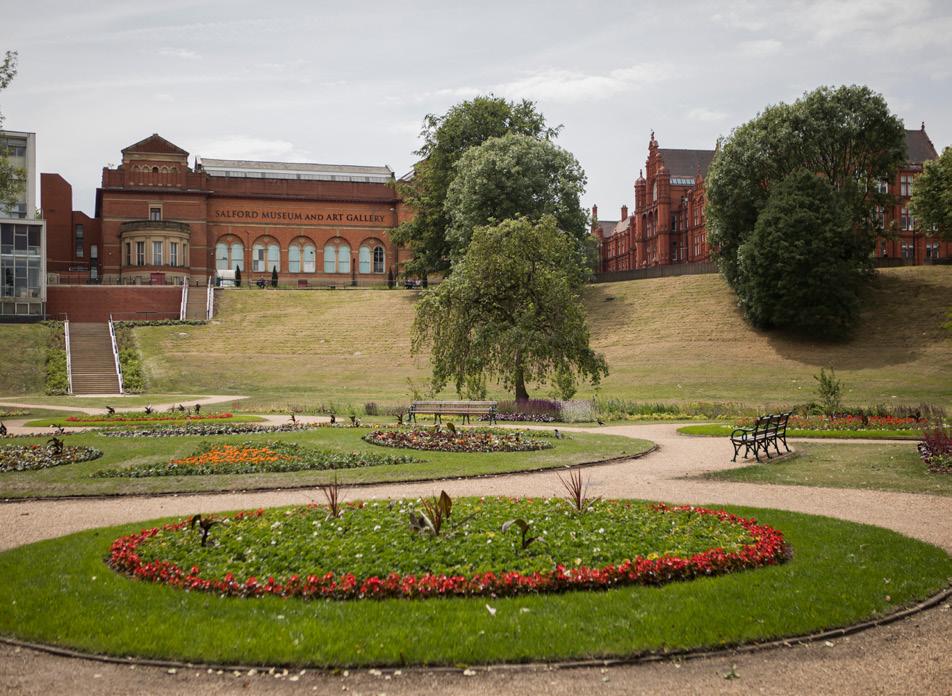
University is a time to make new friends, discover new passions and find your voice. Our Student Union runs a range of student-led societies which cover all aspects of student life – from gaming to sports, politics to the environment, performance to faith. You’ll be sure to find your place here.

There’s more to our campus than places to study. Fitness fanatics can take advantage of our large sports centre, 3G sports pitches and swimming pool, while culture vultures can revel in Atmosphere Café, the Art Gallery and our New Adelphi Theatre. There’s lots of options to keep you busy!
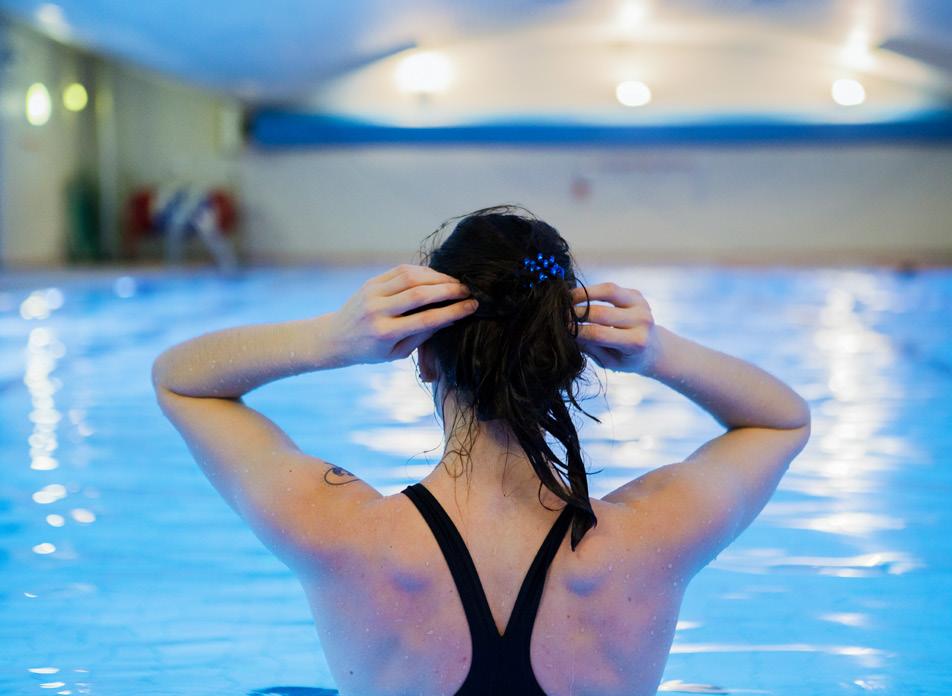
If you’re travelling from further afield, you can make your first year an even more memorable one by living in our stylish student accommodation right at the heart of campus.
If you’re here for the day, our specialist facilities, onsite parking and handy train and tram station access make commuting a breeze. Our new commuter lounges feature comfy seating, cooking facilities and extra study space – your home from home when you’re studying on campus.
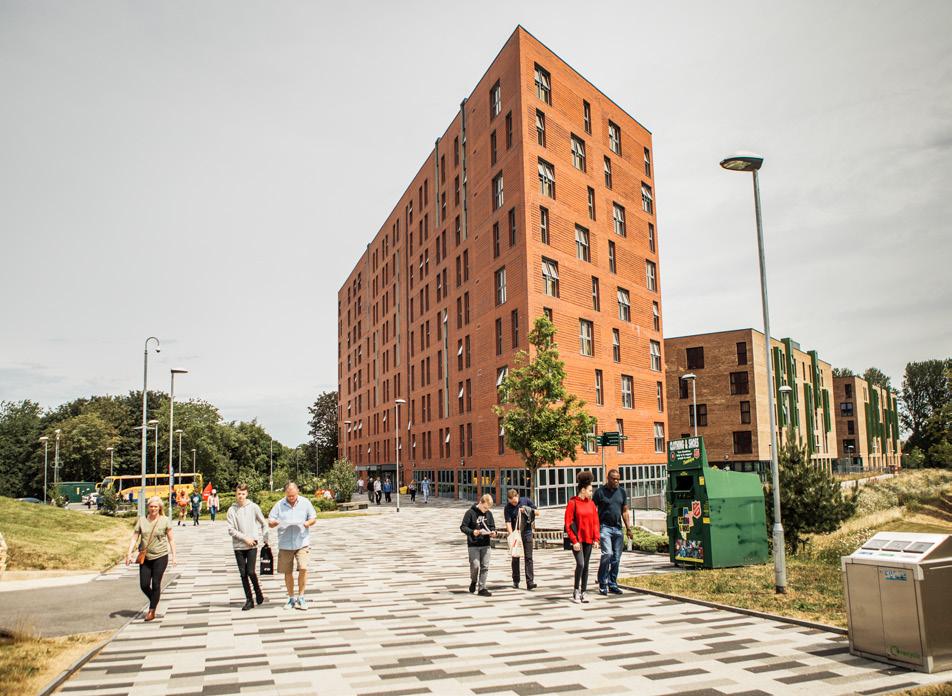
If you want to discuss any course or the application process, our dedicated course enquiries team is on hand to answer your queries:
+44 (0)161 295 4545 enquiries@salford.ac.uk salford.ac.uk/enquiries
If you are applying directly from school or college, you’ll make your application through UCAS – the organisation which processes applications for UK higher education.
If you’re not applying directly from school or college, you can complete our online application form. Find out more at: salford.ac.uk/how-to-apply
Places on some of our courses can be highly competitive and may also require you to attend an interview.
Interviews are nothing to be nervous about, they just allow us to talk to you about your chosen subject area in more detail and learn more about your ideas and current skills.
For detailed course information and entry requirements, use our handy Course Finder on our website: salford.ac.uk
We believe in creating opportunities for anyone who has the passion to learn. If you’d like to join us from the world of work, or balance the two, you’re very welcome at Salford.
The Accreditation of Prior Learning (APL) process could help you to make your work and life experience count. The APL process can be used for course entry, or to give you exemptions from some parts of your course. Find out more at:
salford.ac.uk/how-to-apply
As an international applicant, you are able to apply through UCAS, the organisation which processes applications for UK higher education, or you can apply directly through our regional offices or approved education consultant in your country.
To find out more and for help you with your application, you can visit our website where you will find advice on how to apply, entry and English language requirements, documents required, help and advice with visa requirements, and much more.
salford.ac.uk/international
